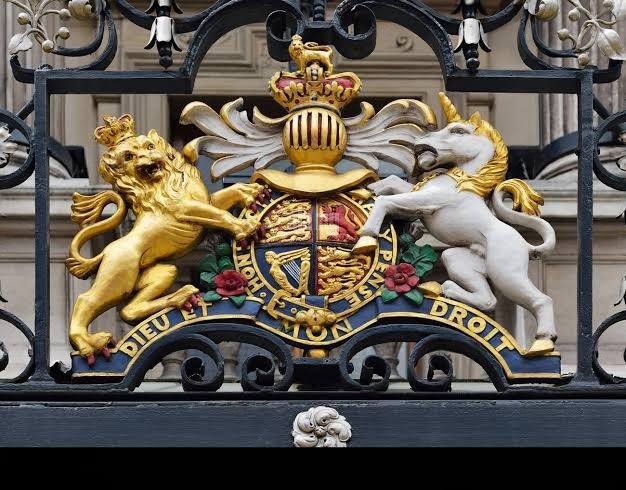Nigeria’s legal profession faces a defining test of integrity. A judgment delivered in a UK court has laid bare disturbing findings of fraud, fabricated identities, and attempts to unlawfully seize property tied to late General Jerry Useni, a former Minister of the Federal Capital Territory under General Sani Abacha’s regime. At the center of the storm is Chief Mike Ozekhome, SAN — one of Nigeria’s most high-profile lawyers, activists, and a Senior Advocate of Nigeria (SAN).
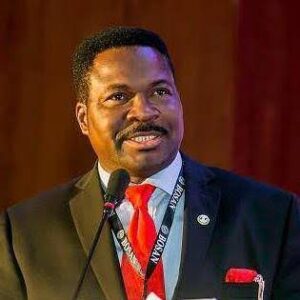
For a lawyer of his stature to be implicated in such conduct is not just a national scandal but an international embarrassment. It has cast a long shadow on Nigeria’s legal system at a time when President Bola Ahmed Tinubu is working tirelessly to launder Nigeria’s image abroad, court global investors, and restore international trust. The judgment has made Nigeria a subject of ridicule — suggesting that even its most senior legal minds cannot be trusted with honesty, integrity, or basic professional ethics.
The case now demands urgent action from the Nigerian Bar Association (NBA), the Legal Practitioners Privileges Committee (LPPC), the Legal Practitioners Disciplinary Committee (LPDC), the Attorney General of the Federation (AGF), and the Ministry of Justice. Failure to act decisively would not only deepen cynicism at home but also confirm suspicions abroad that Nigeria tolerates corruption at its highest professional levels.
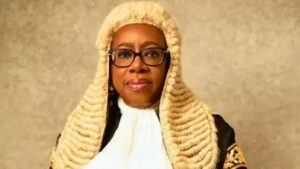
The Case at a Glance
The dispute concerned a property in North London purchased in 1993 by General Jerry Useni, then FCT Minister under the Abacha regime.
The property, valued at £200,000 at the time (equivalent to roughly £500,000 today with inflation), was bought with funds the court deemed looted and registered under the alias “Tali Shani” to obscure ownership.
Chief Mike Ozekhome, SAN — a close friend and legal counsel to Useni — later sought to register the property in his own name. He claimed that one Mr. Tali Shani had transferred the property to him in gratitude for legal services rendered.
A woman claiming to be Ms. Tali Shani surfaced, alleging that she was General Useni’s mistress and the rightful beneficiary. She never appeared in court, and documents presented on her behalf were proven to be forged. She “died” under mysterious circumstances just as the court insisted she testify via video link to prove her existence.
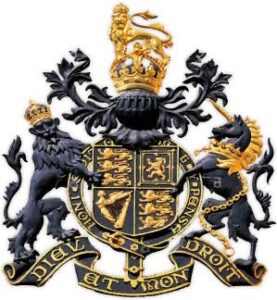
Ozekhome produced a man purporting to be Mr. Tali Shani, but his testimony collapsed under scrutiny. He could not credibly explain how, at just 20 years old in 1993, he obtained £200,000 to purchase the property.
General Useni himself, despite advanced age, testified with clarity: he purchased the property, never heard of “Tali Shani,” and never authorized any transfer.
The UK court concluded that everyone but Useni had lied. It held that Ms. Tali Shani never existed, that documents presented were fraudulent, and that Ozekhome’s claim to ownership was unauthorized.
Ethical Implications
The implications for Chief Mike Ozekhome SAN are severe. As a Senior Advocate of Nigeria (SAN), he occupies the highest echelon of Nigeria’s legal profession, a rank equivalent to the Queen’s Counsel (QC) in the UK. Ozekhome is also known for his work as a constitutional lawyer, human rights activist, and commentator on national issues.
Yet, the UK court judgment points to fundamental ethical breaches:
1. Conflict of Interest – He was undisputedly legal counsel to both General Useni and the fictitious “Mr. Tali Shani.” Representing conflicting interests is a direct violation of professional ethics.
2. Misrepresentation Under Oath – Presenting false testimony and fabricated witnesses before a foreign court undermines the integrity of the legal system.
3. Breach of Fiduciary Duty – Attempting to acquire a client’s property for personal gain constitutes one of the gravest betrayals in the lawyer-client relationship.
4. Damage to Nigeria’s Image – Such conduct, exposed abroad, confirms the worst stereotypes of Nigerian corruption and dishonesty.
The Rules of Professional Conduct for Legal Practitioners in Nigeria (2007) are unambiguous:

“A lawyer shall not acquire a proprietary interest in the cause of action or subject matter of litigation he is conducting for a client.”
By the UK court’s findings, Ozekhome stands in direct violation of this rule.
Role of the Ministry of Justice and Attorney General
The Attorney General of the Federation (AGF) and the Ministry of Justice cannot remain silent. They bear responsibility for ensuring that Nigeria’s legal system upholds the rule of law and maintains credibility internationally.
Immediate steps expected include:
Referring the matter to the LPDC for urgent investigation.
Publicly acknowledging the judgment to demonstrate Nigeria’s commitment to accountability.
Ensuring cooperation with UK authorities should criminal inquiries expand.
Protecting Nigeria’s international image by showing that no lawyer, however senior, is above the law.
Without such action, the impression left will be that Nigeria lacks the institutional will to discipline its own.
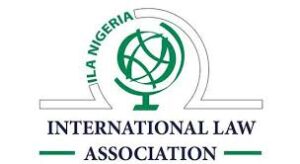
Comparative Analysis: How Other Jurisdictions Respond
The conduct revealed in this case would have prompted swift and severe action in other countries:
United Kingdom: Lawyers found guilty of dishonesty are routinely struck off. In 2012, solicitor Andrew Crossley was banned for life for unethical conduct in copyright litigation — a far lesser offense than outright fraud.
United States: Attorney Michael Avenatti, once a media sensation, was disbarred and sentenced to 14 years in prison for fraud and extortion in 2022.
South Africa: In 2019, Advocate Tumi Mokwena was struck off the roll for dishonesty and misconduct, ending his career.
Canada: Even incivility in court has triggered disbarment proceedings, showing the zero-tolerance standard expected of legal professionals.
If Nigeria fails to act, it will be seen as condoning behavior that other jurisdictions would treat as career-ending crimes.
Voices from the International Legal Community
The scandal offends every principle recognized by international legal bodies:
The International Bar Association (IBA) asserts:

“The independence, integrity, and high ethical standards of the legal profession are indispensable to the rule of law.”
The American Bar Association (ABA) Model Rules emphasize:
“A lawyer’s conduct should conform to the requirements of the law, both in professional service to clients and in the lawyer’s business and personal affairs.”
Lord Denning, one of Britain’s most respected judges, once stated:
“The duty of a lawyer is to his client, but it is even higher to the court, and it is highest of all to the rule of law.”
By these standards, the conduct exposed in the UK judgment is indefensible.
Fact Check
Property Purchase: Confirmed by the UK court — bought by General Useni in 1993.
Existence of “Tali Shani”: Court held Ms. Tali Shani never existed; documents were forged.
Ozekhome’s Role: Confirmed as counsel to Useni and claimant to the property.
Judgment Outcome: Court found only General Useni told the truth; all other claims were fabrications.
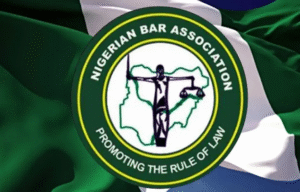
Why the NBA Must Act
The Nigerian Bar Association (NBA), the Legal Practitioners Privileges Committee (LPPC), and the Legal Practitioners Disciplinary Committee (LPDC) are now on trial before the world. Their silence or hesitation will be interpreted as complicity.
They must:
Open a formal investigation into Chief Ozekhome’s conduct.
Suspend his SAN rank pending outcome.
Deregister and sanction any lawyers involved in fabricating evidence.
Communicate their findings publicly.
The credibility of the SAN rank itself is at stake. If left unchecked, this case will erode confidence not only in Nigeria’s lawyers but in the nation’s justice system.
Broader Implications for Nigeria
At a time when President Tinubu is striving to rebrand Nigeria internationally and attract investors, scandals like this undo years of diplomatic and economic effort. They reinforce stereotypes of corruption and dishonesty, weakening Nigeria’s bargaining power and damaging its global reputation.
The message is clear: Nigeria cannot project itself as an emerging economic hub while its senior lawyers are exposed in foreign courts for fraud.
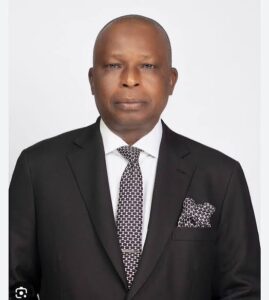
Conclusion
The UK judgment has made one thing plain: Nigeria’s legal profession faces an existential test of integrity. Chief Mike Ozekhome SAN, a lawyer once hailed for his activism and brilliance, has been implicated in conduct that dishonors the very oath he swore to uphold.
The NBA, LPPC, LPDC, Ministry of Justice, and Attorney General must rise to this moment. The world is watching. Nigeria cannot afford silence, hesitation, or compromise.
“The findings of the UK Court have exposed conduct that is not only unethical but outrightly unpatriotic. Any lawyer who attempts to defraud his own client, particularly under the rank of Senior Advocate of Nigeria, betrays not only the profession but the nation itself. Such infractions bring shame to Nigeria before the international community.
Dr. Fraser. MFR.
Perception Management & Governance Consultant.
“The Nigerian Bar Association, the Legal Practitioners Privileges Committee, and the Legal Practitioners Disciplinary Committee must act swiftly and decisively. Silence or inaction will be seen as complicity. Patriotism demands that the legal profession cleanse itself of dishonor. The world is watching, and Nigeria cannot afford to fail this test of integrity.”
— The National Patriots
⚖️ Headlinenews.news — Speaking truth, shaping perspective.


